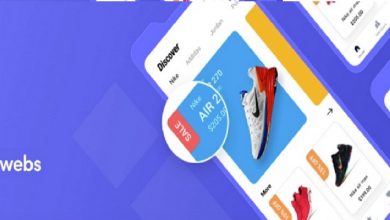Pros & Cons: Native Vs Cross Platform

Native app development called as the process of creating an app for mobile devices designed exclusively for a specific platform. The mobile app design and development is done using software and programming languages specifically for one platform. For instance, you could create a native Android app using Java or Kotlin, and then pick Swift or Objective-C to build iOS apps.
Native applications are well-known for their superior user experience because they generally have high performance. The user experience is also improved because the graphics are specific to the platform’s UX. But, startups are worried about the cost of developing native apps since they have to manage simultaneous development on both platforms.
Pros Of Native App Development
Large Functionality
You’ll have access to each API and tool offered by the platform you’re working with. Technically speaking, there are no limitations on how programmers can work with the latest application.
Better Store Support
An app natively developed, more likely to create and generally placed higher in the app store since it offers more performance and speed.
Greater Scalability
Applications designed for native environments are also more adaptable, due to the flexibility in resource management as well as the variety of tools available.
Excellent Performance and Great UX
Direct interaction between code and the resource base can result in high performance. In addition, native apps generally provide a better UX, a part of the platform.
Cons Of Native App Development
High-cost
The development of native apps expensive when you have to release apps for simultaneously iOS as well as Android. This means you’ll have to employ two teams operating with different devices.
Duration Consuming
Native app development, time-consuming because the work done for one platform can’t replicated for a different. A separate team is required to work on the different version.
What is Cross-Platform App Development?
Cross-platform development is the process of developing an application that runs across various platforms. This is accomplished making use of tools such as React Native, Xamarin, and Flutter and the apps developed to utilize for both Android as well as iOS.
While cross-platform development is time-saving and money, you run the risk of loss of quality while developing. It’s difficult to create an application optimized across different platforms. Additionally, the app will require an additional layer of abstraction when it is running, resulting in a lower performance.
Startups will benefit from the reduction in time and costs through cross-platform development. But, it’s important be aware that it could become more challenging to modify the application beyond what’s permitted within the framework.
VisionX software company’s team has enough of experience in the development of apps that run on multiple platforms.
Pros Of Cross-Platform App Development
Lower Cost
If you don’t have two developers, you’ll only need one team to develop a cross-platform application. This means you’ll cut the development costs.
Speedier Development
A single process of creation required to develop an app compatible with multiple platforms.
Simple Code Base
Because the app built using a single cross-platform development tool with only one source code generated.
The Cons Of Cross-Platform Application Development
Application that is slower
The need for an extra abstract layer as well as a rendering method causes the cross-platform application get slower than native apps.
Limited Functionality
Developers may face difficulties using smartphone features like microphones, cameras and geolocation using methods possible with a native app to the device.
Limited UX
Cross-platform apps can’t benefit from the native UX components. So, they can’t provide the exact UX experience that’s accustomed with the particular platform.
How To Choose Mobile App Development Approach?
Complexity of Application
If you’re creating an application that displays information pulled from the internet developing for cross-platform platforms is an ideal option. But if the app involves intensive processing or access to low-level APIs such as Bluetooth for example, you’ll need to choose native development.
Cost
Native development creates apps that have great performance, however it is costly to create. If you’re working with a small budget developing cross-platform apps, then cross-platform development the most suitable option. It will save you around 30%-40 percent since only one codebase designed to run an application with the two platforms of Android or iOS.
Development Time
In certain projects, it is important to have an MVP app out as soon as you can. That’s why you’ll want to consider developing cross-platform. It’s not necessary to develop two different versions of your application. Instead, only one phase of development required for the app made available on Android or iOS.
UI/UX
If you’re in search of breathtaking visuals and an experience it, then the answer is native development. Developers can access the UI/UX elements when they develop in a native platform. Choosing to work cross-platform can greatly reduce the UI/UX aspect of the application.
Native or Cross-Platform Apps?
Your decision will have an enormous impact on the cost of time, the amount, and also how users will react to the application. You should take all of the above considerations prior to making a final decision. If you’re stuck there are additional ideas.
Choose native development If:
- Your application needs full access to all telephone resources and services.
- You’re looking to create the most responsive application
- You want to take the full benefit of mobile phones hardware
- You’re looking for an application, easily upgraded and improved with new features in the near future
Choose Cross-Platform Development if:
- You’re willing to resigned to a slower app
- The app does not use complex animation or complex logic
- A brief time to test your idea or hypotheses on the app market
Summary
Native and cross-platform development have various advantages and disadvantages. In the end, the decision of choosing between the two dependent on the requirements of the project and the abilities of the developers involved.
Native apps considered the most effective choice for quality of experience for users and speed. Although they’re more costly but you’ll comfortable with lower defects and superior quality images.
Apps for cross-platforms simple and fast to develop however, it will require more effort to provide the same experience for users on each platform.
Are you unsure whether to choose the right platform for your development? Ask for advice from VisionX software company’s team to get a clear idea.





